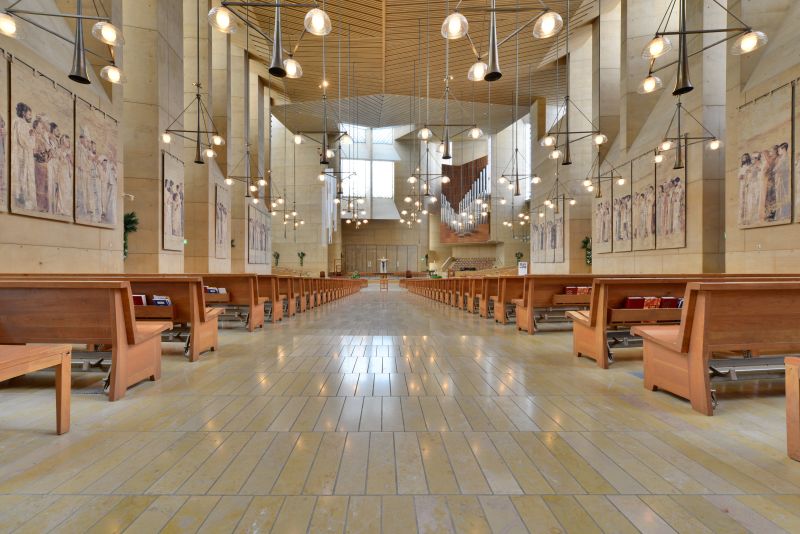 null / L’Osservatore Romano.
null / L’Osservatore Romano.
Denver, Colo., Feb 23, 2023 / 16:00 pm (CNA).
Lent is supposed to be a time of penance in the Catholic Church. This year, it’s a time when priests in the confessional will use a revised translation of the sacrament of penance and reconciliation to forgive the sins of Catholic penitents.
The changes are noticeable in the formula of absolution, when the priest speaks in the person of Jesus Christ to absolve a Catholic from his or her sins. The “essential words” of the priest’s absolution formula have not been changed, but there are “two minor modifications to the preliminary part of the prayer,” according to the April 2022 newsletter of the Committee on Divine Worship of the U.S. Conference of Catholic Bishops (USCCB).
Here’s the new approved text, with changes in bold:
God, the Father of mercies,
through the Death and Resurrection of his Son
has reconciled the world to himself
and poured out the Holy Spirit for the forgiveness of sins;
through the ministry of the Church may God grant you pardon and peace,
and I absolve you from your sins
in the name of the Father, and of the Son, [sign of the cross]
and of the Holy Spirit. Amen.
The line “poured out the Holy Spirit” previously read “sent the Holy Spirit among us.” The phrase “may God grant you pardon and peace” is only a one-word change: It previously read “may God give you pardon and peace.”
The changes add “a little bit more richness to the language,” according to Monsignor Richard Hilgartner, a former executive director of the USCCB’s Secretariat of Divine Worship who is now pastor of St. Joseph Parish in Cockeysville, Maryland.
“God’s granting something that we don’t deserve, and that’s what forgiveness is. It’s something that we don’t earn or deserve,” Hilgartner told the Archdiocese of Baltimore newspaper The Catholic Review.
The sacrament of penance, also called reconciliation or confession, is the means through which God grants pardon for sins through the priest’s ministry. In the sacrament, the contrite penitent discloses his or her sins to a Catholic priest who grants sacramental absolution. The penitent makes an act of contrition in which he or she resolves to not sin again. The priest generally instructs the penitent to perform an act of satisfaction, usually called a penance. This can take the form of prayer, such as praying three Hail Marys, for example.
The U.S. Conference of Catholic Bishops’ 2021 fall general assembly voted in favor of the new translation of the prayer, with 182 votes in favor, 6 against, and 2 abstentions. The Vatican’s Dicastery for Divine Worship and the Discipline of the Sacraments approved the translation in April 2022.
The new language for the priest’s absolution is allowed as of Ash Wednesday, the start of Lent. Priests must use the new language starting on Divine Mercy Sunday, April 16, the first Sunday after Easter 2023.
Hilgartner noted that the liturgical season of Lent is a penitential time when many Catholics especially seek out the sacrament of reconciliation. He told the Catholic Review that many Catholics feel peace and relief after going to confession, especially if they have been away from the sacrament for a long time.
“Inevitably, people say, ‘I feel so much better. I feel like a burden has been lifted,’ because that’s what’s happening. God is casting behind his back all our sins, taking them away from us in a way that we don’t know how to do for ourselves,” he said. “I hear often about how people feel literally unburdened by this happening. And it’s the great gift — that the Lord’s taking this upon himself. For us, this is what the cross is all about, that he takes all of our sins to the cross so that we don’t have to.”
Under Church law, every Catholic has the right to an anonymous sacramental confession. In practice, priests often do not even know the identity of a penitent. In the Catholic understanding of the “seal of confession,” the contents are “inviolable.” Any priest who discloses the contents of a confession faces among the harshest penalties of the Church, an automatic excommunication.
Pope Francis has frequently encouraged Catholics to receive God’s forgiveness in the sacrament of penance.
[…]



